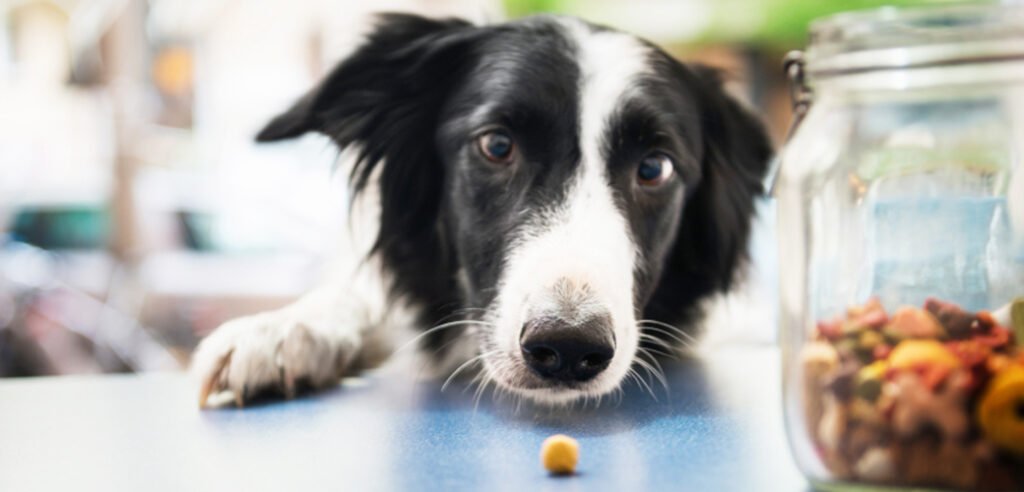Table of Contents
Providing your dog with the right nutrition is crucial for their overall health and well-being. A balanced diet helps maintain a healthy weight, supports growth, and prevents various health issues. Here are the best nutrition tips for dogs to ensure your furry friend stays healthy and happy.

1. Choose High-Quality Dog Food: Best Nutrition Tips for Dogs
Selecting a high-quality dog food is the foundation of your dog’s health. Look for brands that list meat as the first ingredient and avoid foods with fillers like corn, wheat, and soy.
- Tip: Opt for dog food that meets the Association of American Feed Control Officials (AAFCO) standards. For more information, visit AKC.
2. Provide a Balanced Diet
A balanced diet includes the right proportions of protein, fat, carbohydrates, vitamins, and minerals. Consult your veterinarian to ensure your dog’s diet meets their specific nutritional needs.
- Tip: Use a feeding guide to determine the appropriate portion sizes based on your dog’s age, weight, and activity level. For more advice, visit PetMD.
3. Monitor Portion Sizes: Best Nutrition Tips for Dogs
Overfeeding can lead to obesity, which increases the risk of various health issues. Measure your dog’s food to ensure they are receiving the correct portion sizes and adjust as needed based on their activity level and weight.
- Tip: Follow the feeding recommendations on the dog food packaging and adjust based on your dog’s needs. For more tips, visit ASPCA.
4. Provide Fresh Water
Fresh, clean water should always be available to your dog. Proper hydration is essential for digestion, nutrient absorption, and overall health.
- Tip: Clean your dog’s water bowl daily and refill it with fresh water. For more information, visit PetMD.
5. Include Healthy Treats: Best Nutrition Tips for Dogs
Treats are a great way to reward your dog, but they should be given in moderation. Choose healthy treats made with natural ingredients and avoid those with artificial colors, flavors, and preservatives.
- Tip: Limit treats to no more than 10% of your dog’s daily caloric intake. For more advice, visit AKC.
6. Avoid Human Foods
Many human foods are toxic to dogs, including chocolate, grapes, onions, and garlic. Avoid feeding your dog table scraps and ensure they have a diet specifically formulated for canines.
- Tip: Familiarize yourself with foods that are harmful to dogs and keep them out of reach. For more information, visit ASPCA.
7. Adjust Diet for Life Stages: Best Nutrition Tips for Dogs
As dogs age, their nutritional needs change. Puppies require more calories and nutrients for growth, while senior dogs may need fewer calories and more joint-supporting ingredients.
- Tip: Choose age-appropriate dog food to ensure your dog receives the right nutrition throughout their life. For more advice, visit Hill’s Pet.
8. Consider Special Dietary Needs
Some dogs have specific dietary needs due to allergies, intolerances, or medical conditions. Work with your veterinarian to select the right food for dogs with special requirements.
- Tip: Look for hypoallergenic or prescription diets if your dog has food sensitivities. For more information, visit PetMD.
9. Incorporate Omega-3 Fatty Acids: Best Nutrition Tips for Dogs
Omega-3 fatty acids support skin and coat health, reduce inflammation, and promote heart health. Include sources of omega-3s, such as fish oil, in your dog’s diet.
- Tip: Consult your veterinarian before adding supplements to ensure the correct dosage. For more tips, visit AKC.
10. Regular Vet Check-Ups
Regular veterinary check-ups help monitor your dog’s health and nutritional status. Your vet can provide personalized recommendations based on your dog’s needs and health conditions.
- Tip: Schedule annual or bi-annual vet visits to keep your dog’s health on track. For more advice, visit ASPCA.
Conclusion: Best Nutrition Tips for Dogs
Providing proper nutrition is essential for your dog’s overall health and well-being. By following these best nutrition tips for dogs, you can ensure your furry friend stays healthy, happy, and full of energy. For more tips on dog care and nutrition, visit our website.
Frequently Asked Questions about Dog Nutrition
How often should I feed my dog?
Most adult dogs should be fed twice a day, while puppies may require more frequent feedings. Consult your veterinarian to determine the best feeding schedule for your dog. For more information, visit PetMD.
Can I feed my dog a homemade diet?
Homemade diets can be an option, but they must be carefully balanced to ensure they meet all of your dog’s nutritional needs. Work with a veterinary nutritionist to create a suitable homemade diet. For more advice, visit AKC.
What should I do if my dog is overweight?
If your dog is overweight, consult your veterinarian to develop a weight loss plan. This may include adjusting portion sizes, switching to a weight management food, and increasing exercise. For more tips, visit ASPCA.
Are grain-free diets good for dogs?
Grain-free diets are not necessary for most dogs and can sometimes lead to nutritional imbalances. Consult your veterinarian to determine if a grain-free diet is appropriate for your dog. For more information, visit PetMD.
How can I tell if my dog has a food allergy?
Common signs of food allergies in dogs include itching, ear infections, gastrointestinal issues, and skin problems. If you suspect a food allergy, consult your veterinarian for diagnosis and dietary recommendations. For more advice, visit ASPCA.











